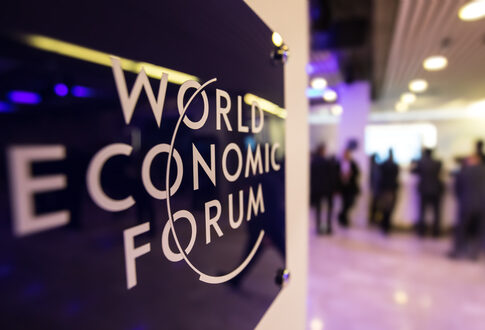Klaus Schwab is stepping down as chair of the board of trustees, marking a significant shift in global governance dynamics. Schwab’s exit raises profound questions about the future direction of the organization that has shaped global economic discussions through its elite Davos conferences. What internal issues led to the leadership change at the World Economic Forum?
The End of an Era at the World Economic Forum
After decades at the helm of one of the world’s most influential organizations, Klaus Schwab is preparing to relinquish his position as chair of the World Economic Forum’s board of trustees. This move follows his earlier announcement last year when he stepped down as executive chairman, now transitioning to a non-executive role as part of a leadership restructuring that will conclude by January 2027.
Schwab’s departure occurs against a backdrop of internal discord and mounting global criticism of the WEF’s agenda, particularly its controversial “Great Reset” initiative. Despite external investigations finding no legal violations or substantiated misconduct allegations against him, the organization has faced accusations of discrimination and harassment against Schwab and other managers.
World Economic Forum kingpin Klaus Schwab has informed the board he will be RESIGNING!
This is another MASSIVE blow to globalism, thanks to President Trump and populist Info Warriors worldwide!
Schwab has infamously been on a Jihad against the United States and conservatism… pic.twitter.com/Lfo4VtN8Zc
— Alex Jones (@RealAlexJones) April 4, 2025
The Uncertain Future of the “Great Reset”
The Great Reset, Schwab’s brainchild for restructuring global economies following the COVID-19 pandemic, now faces an uncertain future without its primary architect. The initiative has drawn criticism for promoting lifestyle changes for environmental reasons, with critics viewing it as an attempt to impose centralized control over individuals and national economies.
In his departure statement, Schwab maintained that “the forum is more important and relevant than ever before” and claimed the organization “is financially very well equipped thanks to successful financial management since its beginning.” His assertion that what is essential now “is to recover our sense of mission” suggests internal challenges have diverted the organization from its core objectives.
I don’t care if he stepped down. Klaus Schwab is still GUILTY of Crimes Against Humanity for planning the ‘Covid-19 Pandemic’.
He must be charged. pic.twitter.com/Ff6AmMpEZm
— Liz Churchill (@liz_churchill10) April 4, 2025
Global Implications and Power Shifts
The timing of Schwab’s announcement coincided with President Trump’s tariff declaration, creating a complex interplay of forces shaping the global economic landscape. This convergence of events signals potential shifts in international economic policies, with competing visions for global governance coming to the forefront.
After stepping down, Schwab reportedly plans to focus on writing his memoirs, potentially offering insights into the inner workings of an organization that has faced increasing scrutiny. The WEF’s annual Davos conference, which brings together political leaders, business executives, and cultural figures, may undergo significant changes in focus and approach under new leadership.
Critics of the WEF view Schwab’s departure as an opportunity to reassess the organization’s influence on global policy and its role in promoting economic frameworks that have been questioned by nationalist and populist movements worldwide. The transition represents not merely a change in leadership but potentially a pivotal moment in the ongoing debate about globalization versus national sovereignty in economic decision-making.


